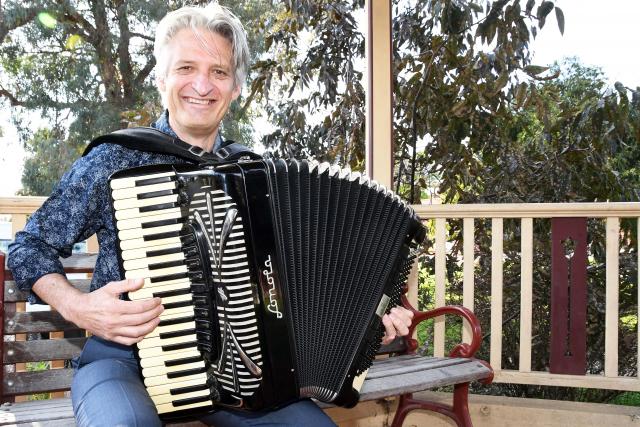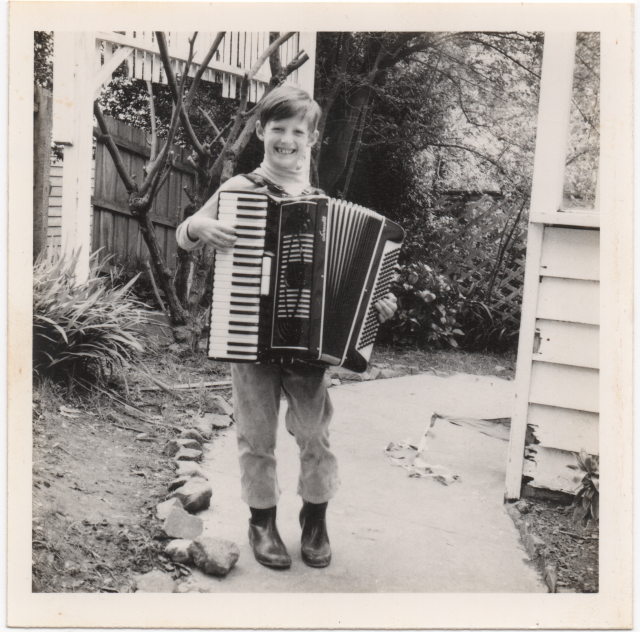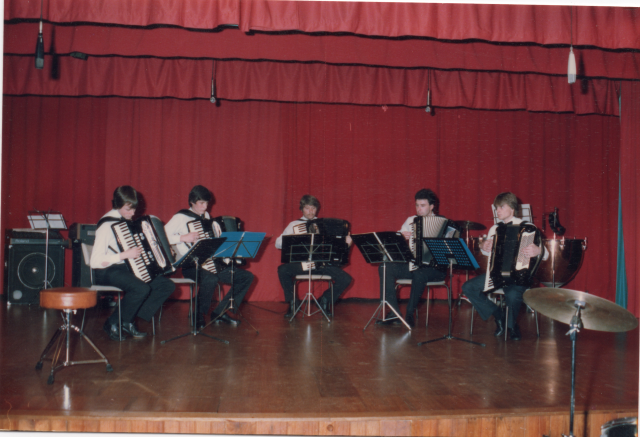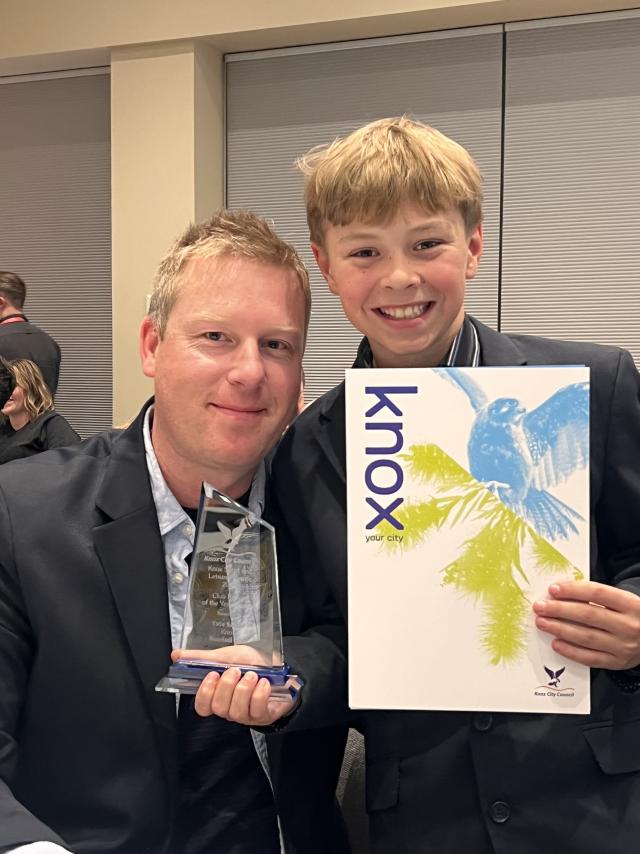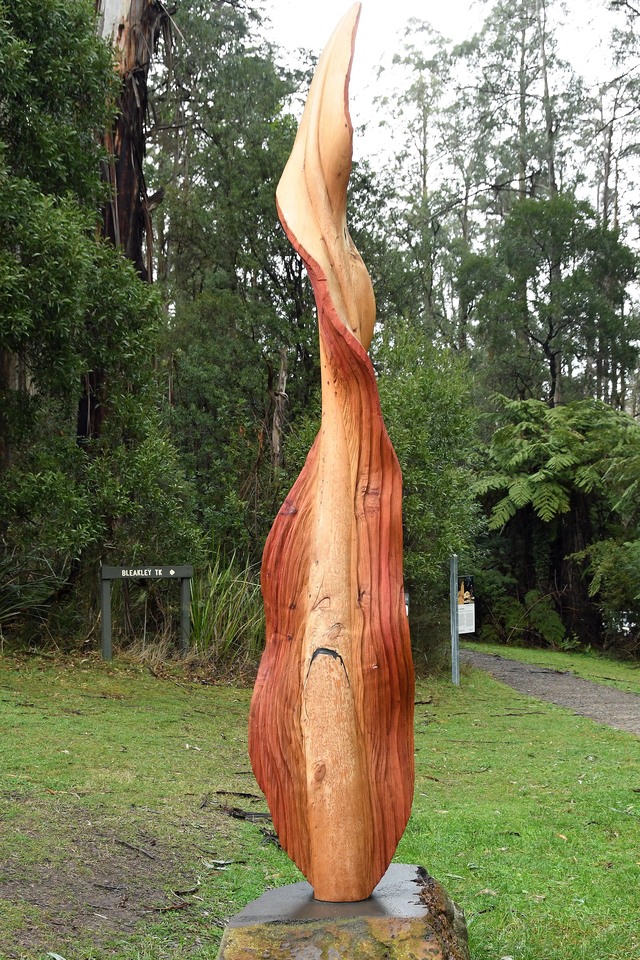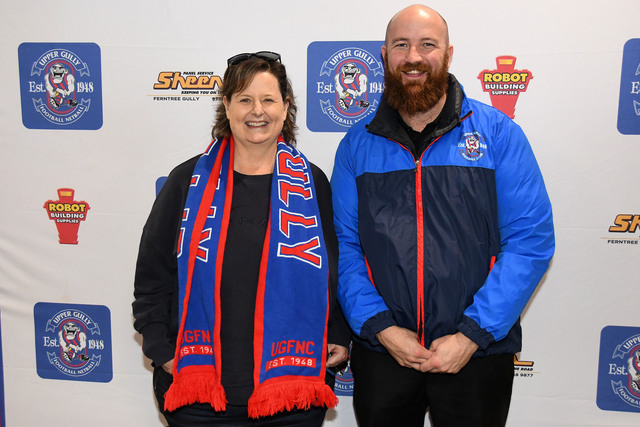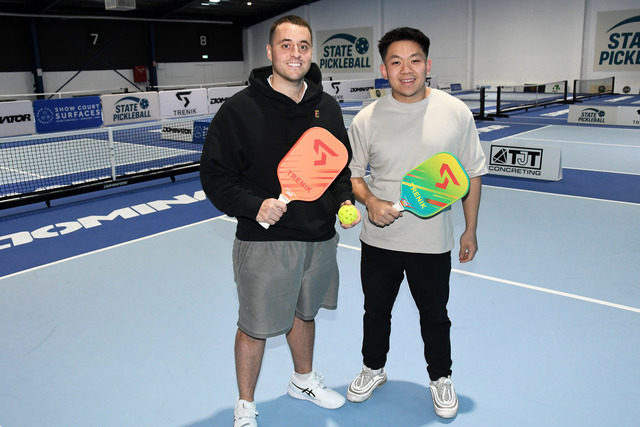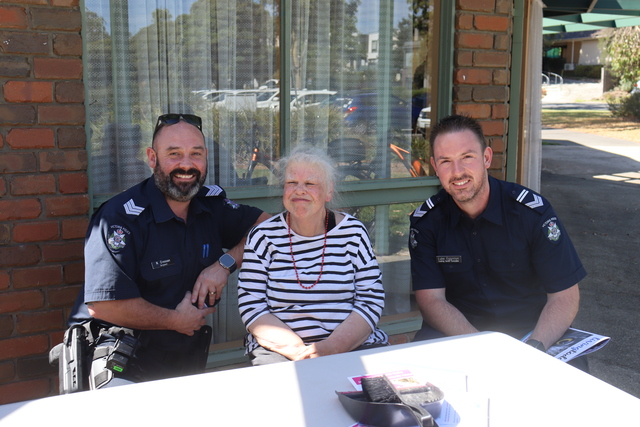Music has been an instrumental part of Anthony Schulz’ life since he was a young boy.
After a trip at the age of six to Lamberti Brothers’ music store in North Melbourne in 1975, Schulz began learning to play the accordion.
His two younger siblings would follow suit; with brother Eric playing the french horn and sister Margaret playing the flute – all with the encouragement of their parents.
“My father (Werner) is German, he’s from East Prussia… it was his idea; my parents felt that the three of us should learn musical instruments,” Schulz said.
“The influence my father had on me and my music was twofold . Firstly, his willingness to take me to lessons and then throughout the week sit with me and guide my practice was a gift that built a lifelong connection between us.
“Secondly, he had dedicated his entire life to his own passion; building a sailing boats. I witnessed from an early age what it means to give oneself to a lifelong passion.”
Schultz said he enjoyed how the accordion felt to play.
“It didn’t cross my mind that I shouldn’t play it,” he said.
“It’s a very physical instrument; there’s a lot going on – you’ve got your right hand playing keys and the left hand playing buttons and squeezing air, so there’s three levels of coordination going on at the same time.”
It was after leaving Ferntree Gully Technical School in Year 10 that Schultz realised he wanted to become a musician.
“I left school quite early and started doing an apprenticeship; and I realised quite early into that that it was not the right thing for me,” Schulz said.
“The accordion teacher that I was studying with – Heinz Dabernig – who was teaching at a music school or out of his studio at home in Ringwood East – he was instrumental in that realisation.
“He was not only a full -time music teacher, but he was a performer as well. He was playing and doing lots of gigs… he opened that world to me, and then once I started playing in bands and meeting other musicians of my age, I discovered I could study music.”
The more he played, the more Schultz became interested in the more “subtle” sounds of the instrument, and started to investigate jazz as well as more nuanced classical music while playing in bands where there was a high level of communication between instruments.
“I started to realise that the accordion is this beautiful instrument,” he said.
“I played for a long time in a group that had vibraphone; and accordion and vibraphone sound beautiful together, or with a duo that I often play with up in Sydney, with cello, and the way the accordion blends with the cello is really quite special.
“People don’t expect that, so often after concerts people will come up to me and say ‘I had no idea that the accordion could sound like that or could play that kind of music’, which for me I was like, ‘that’s success’.
“If I have somebody coming and saying that to me, I know that I’ve won another heart; so that’s really built my career over the last 30 years, looking at how the accordion works within an ensemble.”
A catch in Schultz’s studies came with the fact that Australia did not recognise the accordion as a legitimate instrument, leaving him to study piano instead.
“I spent a few years preparing on the piano, and then for the next seven years, I studied music fully; I did a TAFE course, and then I did a three-year Bachelor of Music course at the College of the Arts,” he said.
“I did a graduate diploma of education so I could teach, and some years later I did my masters in music performance at the College of the Arts or Melbourne University.”
Throughout his studies, Shulz said he was exposed to various kinds of music and thoughts about what music is.
“Even though a lot of it was on piano, it really radically changed the way I played the accordion,” he said.
“What I’ve often felt is that I stopped thinking like an accordion player and started thinking like a musician, which feels to me like a more holistic way of thinking about the instrument.”
Out of Schulz’ undergraduate degree came a band that toured through Germany, Italy and Switzerland and recorded music overseas.
Then, around 20 years ago, Schulz was contacted by Russian singer Zulya Kamalova, and started playing in the band Zulya and the Children of the Underground, writing original music.
The outfit won an ARIA in 2007 for Best World Music Album for their song 3 Nights.
But Schulz began to realise the accordion was become “less present” in Australia.
“The accordion always had an image problem in Australia, but what I noticed increasingly was there weren’t any younger people engaging with the instrument (that I was aware of),” he said.
Now, as the president of the Victorian branch of the Accordion Society of Australia, Schulz is looking to spread his love of the accordion to the general public by holding a festival celebrating the instrument in Carlton on Saturday 30 September.
“It’s an all day festival and it kicks off at 10 o’clock in the morning and it finishes at around nine o’clock at night and it starts off with a couple of workshops,” he said.
“The first workshop is How to Play New Zeppercordium and that’s conducted by Lucy Riddett; she’s an accordionist who lives down in Geelong that’s very involved with the ASA.
“The second workshop, which runs at the same time, is a workshop on digital accordion, and it’s run by Richard Stacewicz.”
A midday concert, which is free to the public, will see a mix of student performances.
“There’s the Prahran Accordion Band, which is an accordion ensemble that rehearses at the German club in Prahran, they’ll be doing a performance and also there’ll be a shortboard event, so people can just turn up with their accordion and make themselves known and if there’s time they can have a play as well.”
Throughout the day, attendees can also access an accordion room, with an afternoon master class open to the public and run by George Butrumlis – an accordionist who plays with the band Zydeco Jump.
Schulz said there was two reasons why he decided to organise the event.
“To put on a festival where we bring together accordion players who are our members and also to attract members so that they can do these workshops; and part of that of course is learning, but it’s also social,” he said.
“It’s an opportunity for accordion players around the world – we’ve got people coming from New South Wales, we’ve got somebody coming from New Zealand – to come and meet other players and talk about the instruments and their experiences.
“The other side of it – particularly the midday and especially the evening concert – is outreach; it’s an opportunity for us to promote the accordion to the general public, and hopefully start to turn around this perception that it’s a strange instrument that only gets played in Eastern Europe somewhere.”
Schultz said the festival – especially the midday and evening concert – is for “anybody”.
“It’s not for accordion players. It’s for people that are interested in music and love music and are interested in hearing the accordion…it’s inclusive and we’re trying to really bring the instrument to the general public.” he said.
The Accordion Festival is set to be held at the Church of All Nations on 180 Palmerston Street in Carlton.
For more information on the festival, and to buy tickets, head to https://events.humanitix.com/accordion-society-of-australia-vic-festival


